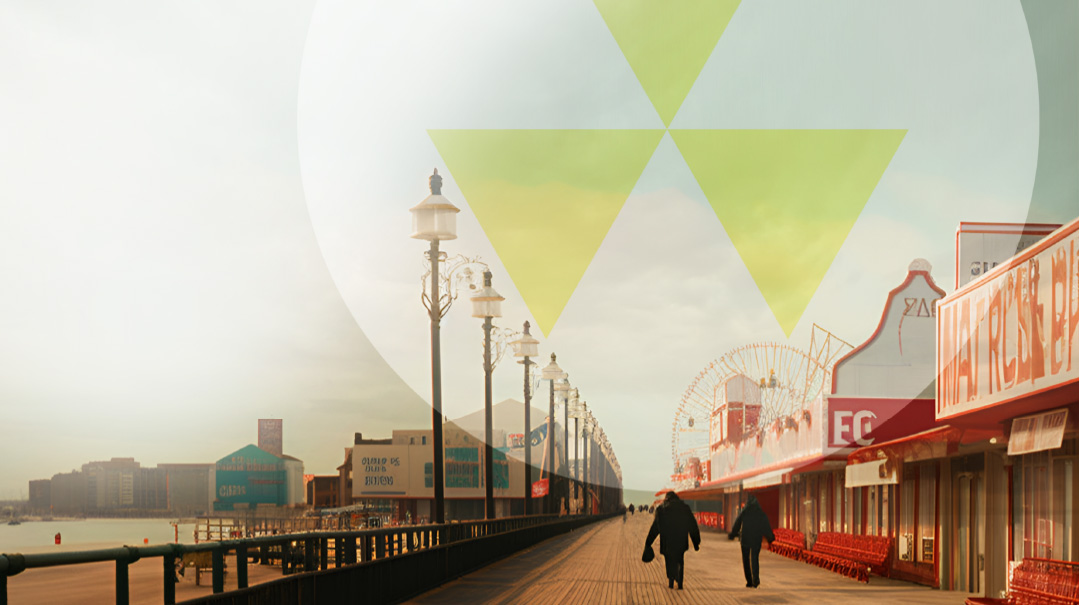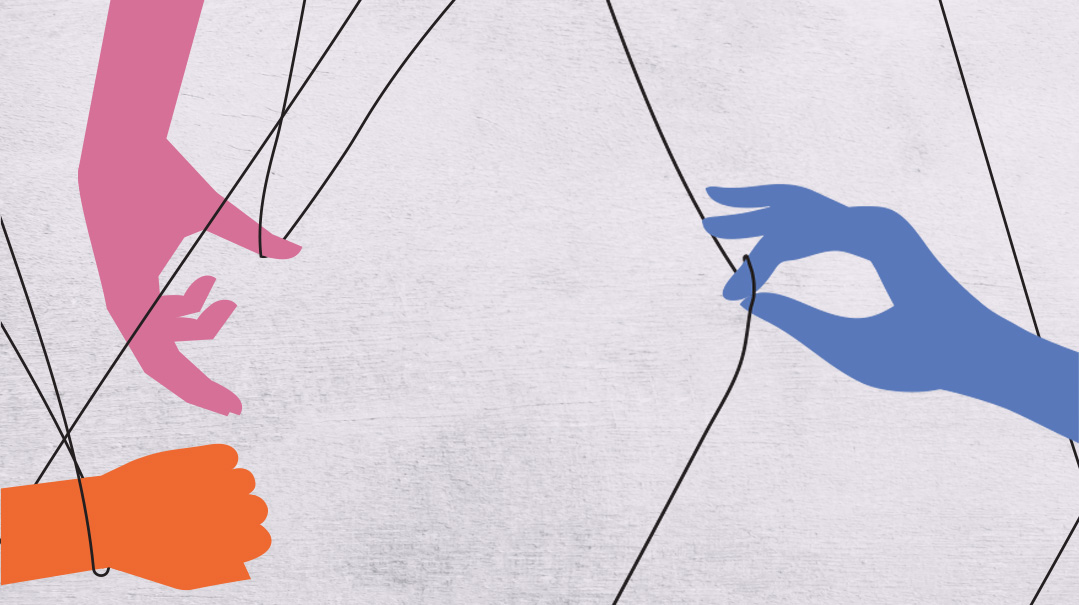Fallout: Chapter 1

The rabbi could wait. The Beatles were here.

February 7, 1964
Marjorie, as always, was late. And today, it mattered.
Not usually. “Punctuality is a sign of a small mind,” she liked to tell her parents loftily, when they begged her to turn up on time for doctors’ appointments, job interviews, college classes, and her older brother’s wedding reception.
On this Friday, Marjorie had come to JFK Airport to meet some VIP author. Deadly boring, but right now it seemed a good idea to keep Father from hitting the roof as he did so often, so she’d rather grumpily agreed to go.
Father, of course, had given her detailed instructions. Be pleasant. Make him feel at home. He’s a rabbi, so behave yourself, Marjorie. We’ve been negotiating about rights for this book for almost two years, and I want to get the business finalized quickly. I’d meet him myself, but I’ve got an important meeting in Hartford that I can’t miss.
Dull, dull, dull.
But here she was, half an hour late, and instead of a few sedate adults waiting in the arrivals area, the place was a wild mix of screeching teenage girls — thousands of them — photographers, and men in suits running around looking important.
Wowee! This was something different, not the usual yawn-filled reality of her life. Marjorie guessed that some celebrity was arriving on Pan Am Yankee Clipper Flight 101 from London Heathrow — and now she would be able to meet him! Maybe she could even get his autograph.
Using her elbows and shoulders, and occasionally giving a screaming girl a rough shove, she made her way to the front of the crowd of teens climbing the stairs to the roof of the Pan Am building. She had almost reached the top when she plowed into a teenage girl, pushing her to the stair below. Somehow, a pang of conscience forced its way into Marjorie’s excited thoughts. After all, even though the girl was blocking her way, she didn’t want her crushed by the mob. She stopped her fevered progress and offered the hapless young woman a hand.
Forgetting that it had been Marjorie who’d sent her flying, the girl shouted her thanks.
“Who’s coming?” Marjorie shouted at her.
Amid the hubbub, Marjorie could barely make out the answer. But she heard one word, and that was enough: Liverpool.
The unknown celebrity could only be the “four lads from Liverpool,” whose songs had become runaway hits, and whose sound announced to the world that a new generation was here and wanted everyone to know it. Hoping for a glimpse of these singing sensations, she reached the roof and joined the noisy, rollicking crowd.
The rabbi could wait. The Beatles were here.
Moe Freed looked out the small window of Pan Am Yankee Clipper Flight 101. They were approaching John F. Kennedy Airport, newly named for the president who had, shockingly, been assassinated only a few months before.
Beneath the wings of the roaring jet he could see the white-capped waves of the Atlantic Ocean. The last time he’d journeyed over these waters, more than 20 years before, he’d been on a camouflaged Navy ship, a young soldier off to war. It was a dangerous trip then, a week spent dodging “wolf packs” of Nazi submarines and their deadly torpedoes.
The “Fasten Seat Belts” sign blinked on, and Moe’s thoughts returned to the present. He felt a surge of excitement. It had been a long time, too long, since he’d seen his father and sister. He’d lived in London with his wife, Robin, for 17 years, and though he’d kept up a lively correspondence with his family, he’d never actually visited them. He’d always hoped that with the birth of a child, Papa and Annie would take the long and expensive trip — but there had been no child. He and Robin hadn’t even gotten a telephone until a few years before, and transatlantic calls cost a small fortune.
He was returning to Coney Island, the beachside Brooklyn neighborhood where he’d grown up. So much had changed: He was an experienced teacher, a bestselling (unbelievable!) author, a man who’d built a good life with his eishes chayil — and now had to build it again.
A smooth landing, a wait while the doors opened and the First Class passengers disembarked, and then Moe Freed was back on American soil.
At first he hardly noticed the chaos in Pan American’s Jetport. His roiling emotions were a superheated combination of anxiety, excitement, hope and doubt. But after a few moments he began to wonder at the crowds of young people.
“What’s going on?” he asked a harried-looking man carrying a camera with an oversized flashbulb.
“Where you live, buddy, in a cave? Don’tcha read the papers?”
Even if you didn’t listen to the wireless or take in a daily paper, if you lived in London you couldn’t avoid hearing about the “Beatlemania” that was striking teenagers all over England and the United States. Moe laughed to himself at the silliness and starstruck nonsense. But as the minutes went by and there was no sign of the person whom Fred Burton had promised would meet him and drive him home, laughter turned to worry. It was Erev Shabbos. He hadn’t thought to bring American currency with him, and he didn’t even have a dime to put into a public phone.
Moe looked around, hoping he’d see another religious Jew who might be able to help him. The crowd only seemed to be growing larger and louder, with hordes of teens now racing down from the roof, mixing with blue-uniformed policemen and photographers.
A young woman whose red hair made a startling contrast to her bright-pink coat almost knocked him down. She was jumping up and down and, though he couldn’t hear it above the cacophony, presumably singing some song together with the other young people. She turned around, stared at Moe — in his black suit and hat, his dark beard edged with gray — and her eyes widened.
“Well, hi,” she said, sticking out her hand, “you must be Rabbi Freed. Welcome to America.”
Though Marjorie had expected someone old and boring, like most of Father’s clients, this rabbi actually seemed pretty okay. He’d laughed at her outstretched hand, waved his own hand at her, and explained in a very weird accent — part Brooklyn, with a touch of English snobbery — that he didn’t shake hands with women. How crazy was that? But certainly interesting.
Bright-red Ford Mustang convertibles have a way of standing out, and it was easy for Marjorie, with the rabbi following her, to spot her father’s sports car.
“Would you mind opening the boot, for my luggage?” he asked, again in that odd accent.
Marjorie stared at him. She was wearing her white hullabaloo boots — they were all the rage, and her parents had bought them for her after weeks of nagging, begging, cajoling and, of course, sulking — but what in the world did this rabbi mean? Put his luggage in a boot?
“Huh?”
Seeing her perplexed face, Rabbi Freed broke into laughter. “Sorry, that’s my British English showing. A ‘boot’ is what you Americans,” a pause — “we Americans call the car’s trunk.”
Speeding along the Belt Parkway, Marjorie shared her excitement with this rabbi from London by raving about the British rock scene. Marjorie liked that he didn’t tell her how awful that music was the way Father and Mother always did. Actually, he was too busy looking out the car window to say much at all, which was fine with Marjorie: She loved a captive audience.
It was only when they got to Surf Avenue that he spoke up.
“Would you mind stopping here? I’d like to go up on the boardwalk for a few minutes. I grew up here, you know. Right near the beach.”
“Wow. Groovy.”
The rabbi gave a short laugh. “Yes, I suppose it was — groovy in some ways. Tough in others.”
Ignoring the frigid ocean breeze, the two walked up to the boardwalk. Marjorie stood a few feet behind the rabbi, wondering what he was thinking about as he leaned over the rails and stared at the dark, heavy winter breakers.
“Okay,” he said, after a few short minutes. “I’m ready to go home.”
IF the rabbi she’d been driving was cool, the place he called “home” was totally unexpected. A four-story brick-and-wood building, its green shutters faded and shabby, metal fire escapes drooping down its sides like some weird black snakes. A small, easily overlooked sign proclaimed it to be the Freed Hotel.
The rabbi, Moses Freed, whose novel was a bestseller in England, lives here?
Apparently. Leaving his suitcases in the car, he bounded up the steps and opened the wood-and-glass door. Marjorie, eager to see more, followed close behind.
A man was standing in the dimly lit parlor. He was dressed a lot like the rabbi Marjorie had been ferrying in her father’s Mustang, but there was more gray in his beard. The two men stared at each other, grasped each other’s hands, and suddenly they were in each other’s arms, hugging as if they’d never let go.
The next few minutes were pandemonium, as others flooded into the overcrowded parlor, older men wearing white shirts and black pants, a sprinkling of younger men in cardigans and even the occasional pullover. A fashionably dressed blonde woman was crying into an embroidered handkerchief, two children hanging on to her looking excited but puzzled. Most of the other women were wearing floral housedresses and some, strangely, had some kind of odd turban on their heads.
Marjorie watched in bemused, and for her, rare silence. These people looked odd to her upper-class suburban eyes, their accented voices speaking in many different languages, loud, passionate, and, yes, very real. The February wind on the boardwalk had been frosty, chilled, but this overcrowded parlor was bathed in warmth and welcome.
A nice feeling.
An elderly woman wearing a sparkling-white apron, a few wisps of gray hair sticking out of her kerchief, walked in, leaning heavily on a cane.
“Shalom aleichem, Moishe Baruch, kim arein, it’s time to eat!” she announced.
An impish grin lit up the rabbi’s face, making him seem younger, almost like a teenager. He followed the old woman and the rest of the crowd raced after them. Within minutes Marjorie was alone in the parlor. With a shrug, she walked out toward her father’s car.
Wistful was not a word anyone had ever used to describe Marjorie. (Wrongheaded, stubborn, “just plain crazy” were the ones she was more used to.) But walking out toward where she’d parked the Mustang, Marjorie felt a strange emotion, one she wasn’t quite used to, brought on by the two rabbis’ hugs and the almost palpable love in that seedy hotel.
There was another feeling as well, one more familiar: hunger. The smell of potato kugel, blintzes fried in butter, mushroom-and-barley soup, homemade creamed herring and fresh-baked salmon wafting into the parlor like some exotic Eastern-European perfume reminded her that she’d been so late getting up, she’d skipped breakfast.
She’d already gunned the Mustang’s engine and was about to roar out when the blonde woman who’d been in the parlor panted up next to her.
“Hi. I’m Moey’s — Rabbi Freed’s — sister. He forgot to take his luggage out of the trunk.”
“The boot.”
“Excuse me?”
“That’s how the British say it. Trunk. Boot. Interesting, no?”
“Uh, yes. Interesting.”
Marjorie’s feelings and words, held back when she’d been in the hotel, now burst forth, a dam exploding. “What a mind-blowing place that hotel is. Do you live there?”
“Yes. No. That is,” Annie looked more closely at this rather unexpected girl, “my father owns the hotel, and I grew up there. I live in Boro Park now.”
“Never heard of it.” Marjorie jumped out of the car and took out Moe’s suitcase, watching as Annie lifted it off the sidewalk.
Good-deed-of-the-day time: Not for nothing had Marjorie spent two years in the Girl Scouts. “It’s kinda heavy, I’ll carry it,” she said, taking it out of Annie’s hand.
And besides, once she was back in the hotel, maybe someone would invite her for lunch. Those blintzes smelled like heaven.
to be continued…
(Originally featured in Family First, Issue 845)
Oops! We could not locate your form.



